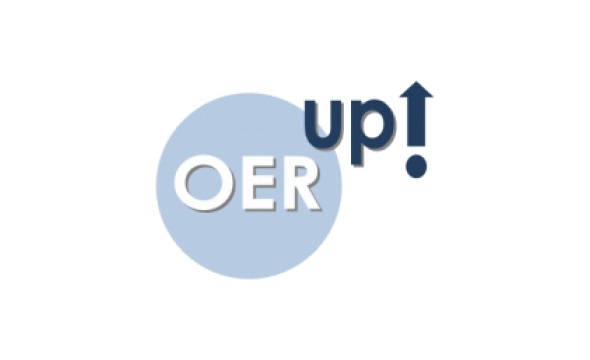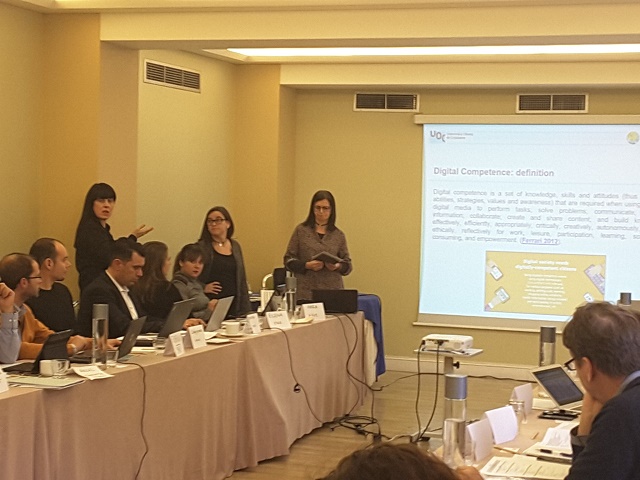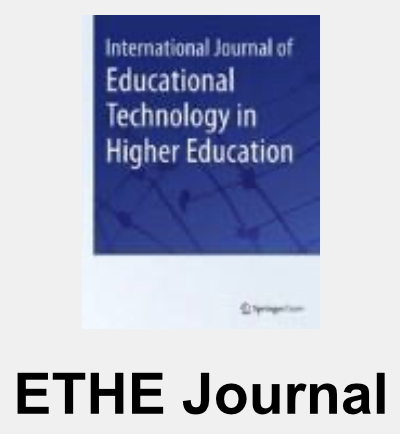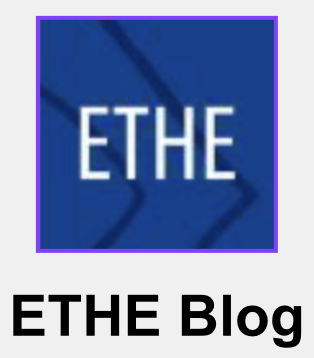Quo Vadis? Or of the mysterious (and not so mysterious) roads of the digitalized data
By Juliana E. Raffaghelli
I took part on September 27 at 8:30 PM at the European Researchers’ Night , at the headquarters of the CSIC in Barcelona. This event has been designed to disseminate research, that is, to communicate the method and results of work to a wide audience. The day chosen for the Researchers ‘ Night implies an activity that takes place not only in Barcelona, only in Catalonia , but throughout Europe: a day where researchers meet with the entire citizenship to talk, demonstrate and invite people to participate in their way of doing science.
In many scientific fields this is a practice. For example, in astrophysics, with its many documentaries, books and pages dedicated to the school. However, for the field of social research and particularly educational research, this is not only more unusual, but also felt as much less necessary. Social research (and very specifically the case of educational research) still does not have a declared place in the scientific universe, and of course the public imaginary of a scientist is not necessarily that of someone who interviews or generates experimental activities at schools.
That is why this presentation became a twofold challenge: On the one hand, to show a work in progress (mine) that in my opinion is still in its foundations, and on the other hand, to involve people in the practice and thinking of educational research .
Making difficult the difficult is easy. Making the difficult easy is very difficult. This is not a tongue twister, but a reality: communicating a research result in a complex vocabulary and close to the field of work itself (research jargon), is something we do several times a year. More difficult is when we want to teach that knowledge to our undergrad students. But the most difficult thing that can occur to a researcher is to transmit issues, problems and methods (of educational research) to a general public, with a very important objective: that of understanding what a research problem is, taking people to appreciate, search and use the results of educational research . For now, unfortunately, there is a certain distance between the results of this research and practice. Hard criticisms are not lacking, related to the lack of focus of educational research on real problems.
Here’s the exercise, contained in the presentation that I made (references and links inside!) , for which it was my will to get a more fun and motivating impact than an informative one. Say, some “intellectual tapas”, to then go to eat the main course of how the datification operates in our own lives. As I said, the goal would have been to focus on a hot topic, the datafication in society, understanding how it operates in educational research, in particular in the field of digital literacy.
Digitized data has become part of our life in a massive way, although we don’t always know it. 10-15 years ago we talked about the Information We believed that the “Web 2.0” was going to open the floodgates for access to information. We did not know what we were doing our best to feed the giant of big data , which today wakes up with a slightly disturbing presence in our lives. And we spoke recently of “datafied society “. I raised then the question “Quo Vadis , data? ” As a question of social relevance that implies a crossing scientific effort (from the generation of infrastructures to the understanding of its impact on society and the necessary regulations). With more specific questions linked: What exactly is the phenomenon of datafication? Where do our data go? Is its use always negative? How do we position ourselves against this phenomenon as students, workers, citizens?
In the Figure: Up to the left, Opening slide (Quo vadis? Or the mysterious (and not such mysterious) pathways of digitalized data). Down to the right, a slide to focus on the topic (Educational Research: How do we do it?).
This social theme was covered through a (simplified) format of educational research, leading participants to observe the modus operandi of the researcher in the field of training and education.
The presentation was then divided into five parts:
- Opening, on the importance of the topic for educational research;
- Work approach (see a problem through the eyes of educational research)
- Entering fully into the research issue / problem ( datafication in the society)
- Dialogue and reflection.
- My research work on the subject as a perspective and conclusions.
With an informative base that has been growing in my last two years of work, and a delay of almost one hour in the presentations, the initial 30 minutes I proposed were reduced to ’15 so that we partially covered my intended goals. However, from the intermediate and final questions, I observed an interesting curiosity about the themes and methods of educational research, referring to the issue of the relationship between the technological problem of datafication , its social impact, and the possible activation of capacities for positioning ourselves against such a phenomenon towards full agency .
In the remaining, you’ll see my final synthesis scheme of the talk, which reflects the research approach in which Edul@b is increasingly investing, through our work on digital competence and learning ecologies.
That’s all by now, folks: See you next time!








